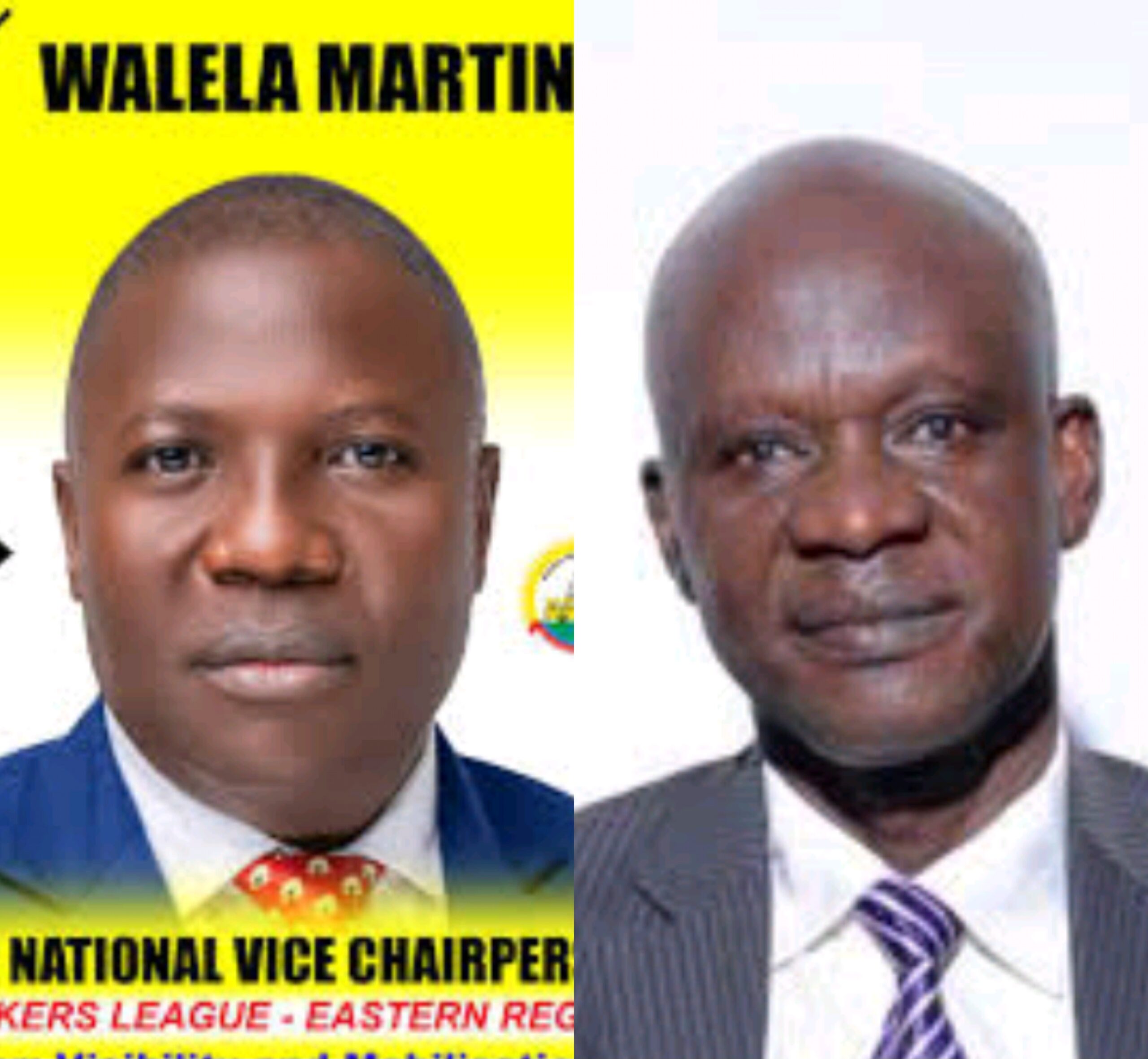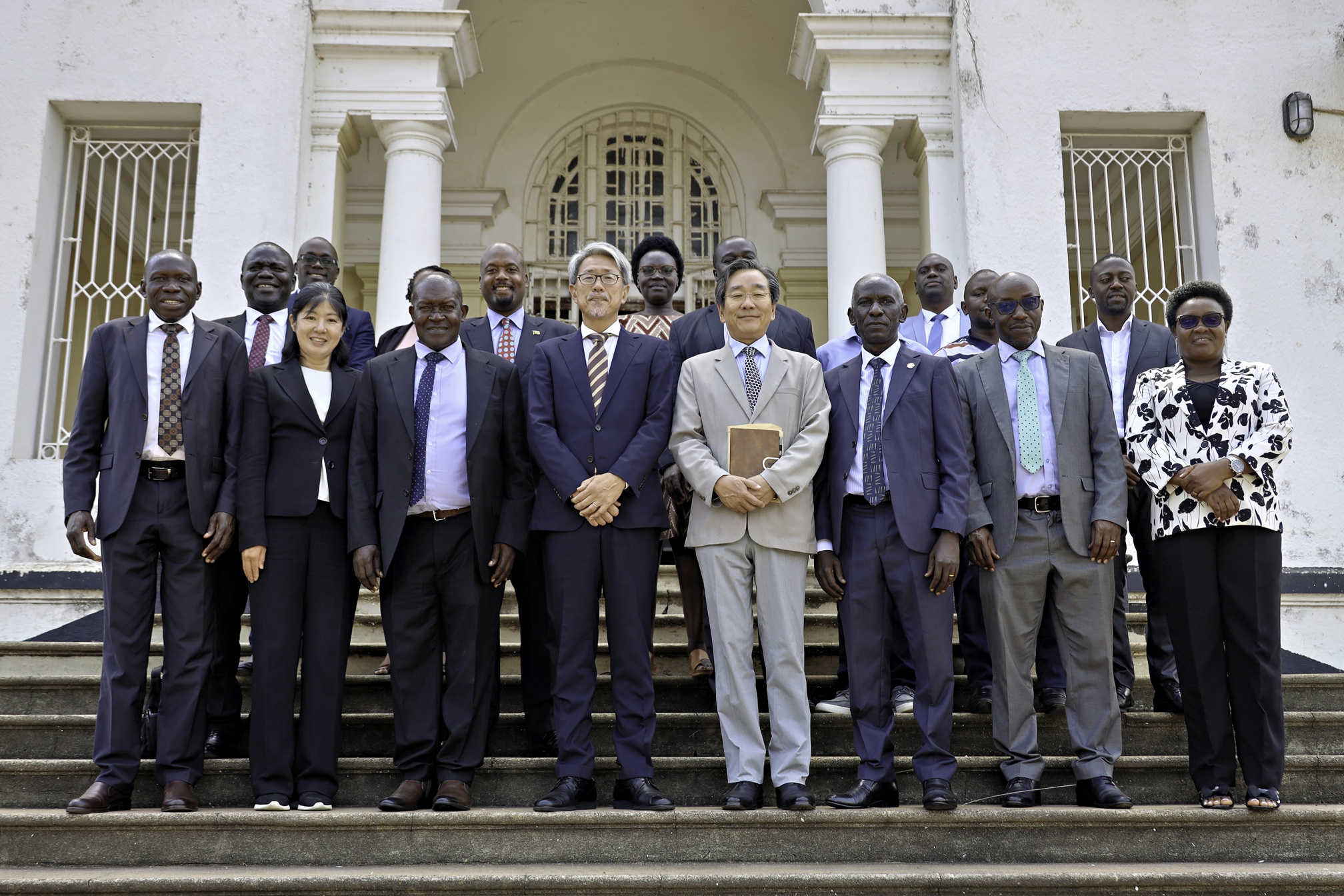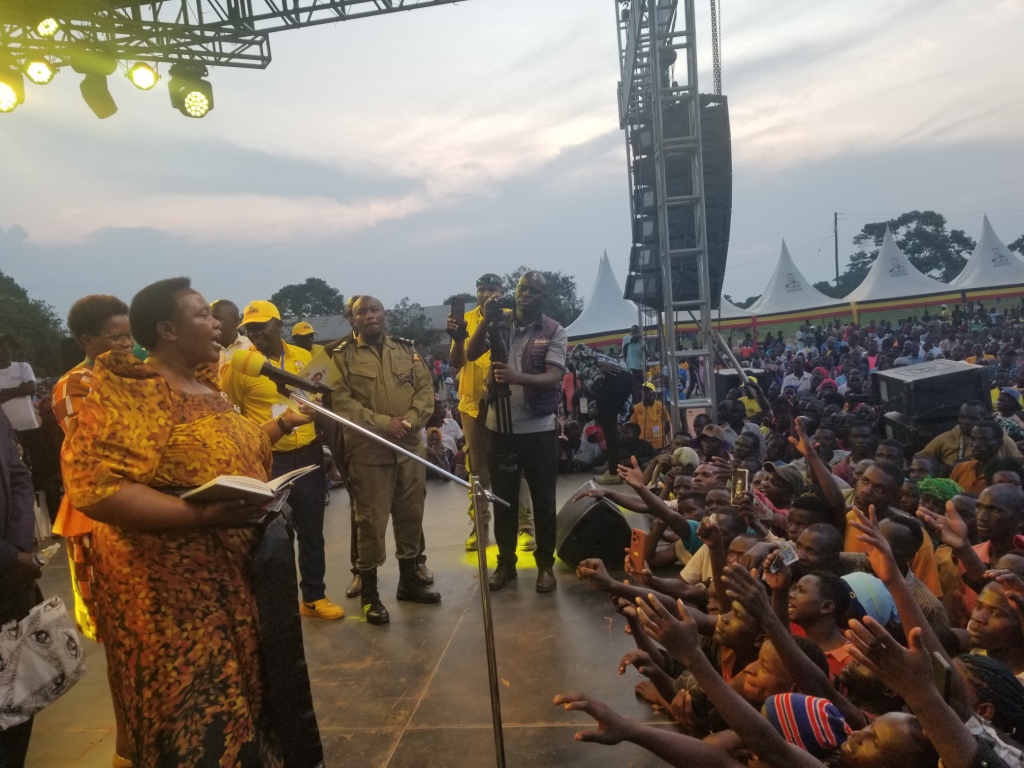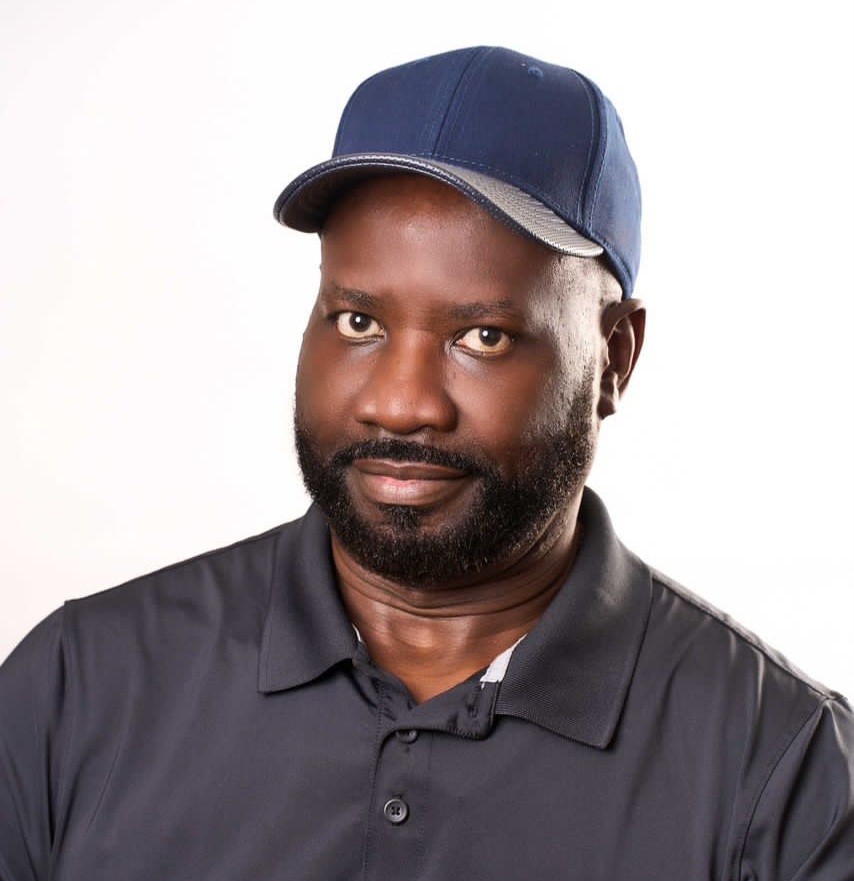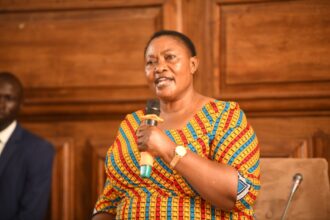Elections are meant to reflect democracy, fairness, and transparency. But what happens when those principles are questioned? This is the situation currently unfolding within Uganda’s ruling party, the National Resistance Movement (NRM), as Hassan Lwabayi Mudiba challenges both the NRM Electoral Commission and his rival, Walela Martin, in a petition that has sparked debate about electoral integrity and justice.
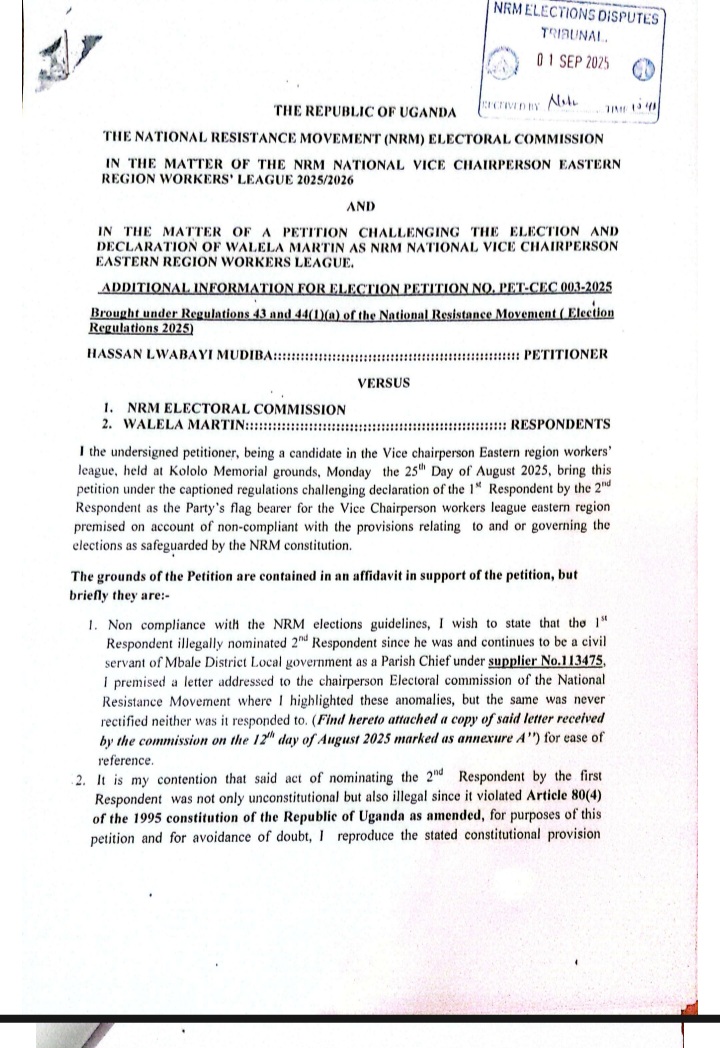
Mudiba, a workers’ leader and unionist, was nominated to contest the position of Vice Chairperson of the Eastern Region Workers’ League. His ambitions were quickly challenged when he discovered that his opponent, Walela Martin, had allegedly been irregularly nominated and declared the winner under suspicious circumstances. Central to Mudiba’s petition is a constitutional argument: Walela was still employed as a civil servant in Mbale District Local Government, serving as a Parish Chief under Supplier No. 113475. According to Article 80(4) of Uganda’s Constitution, any civil servant wishing to run for office must first resign from their post.
Mudiba contends that this constitutional requirement was ignored by the NRM Electoral Commission. He highlights a previous case where civil servant Madina Kiwanuka Nsegumire was disqualified after a complaint, showing that the rules had been strictly enforced in the past. In contrast, Mudiba argues, the selective application of the rules in his case points to discrimination and inconsistency.
Beyond the nomination issue, Mudiba alleges widespread irregularities during the election. He claims that the voters’ register was manipulated, delegates misled, and at one point, the lights were deliberately switched off, creating confusion. He asserts that his opponent’s team exploited this darkness to divert voters away from his line. Complaints lodged by Mudiba, he says, were dismissed, suggesting a deliberate attempt to undermine his chances.
Mudiba also criticizes inconsistencies in the electoral process. For instance, while National Workers’ leaders were not voted on according to districts or sub-regions, the same rule was applied to Workers’ MPs flag bearers. He argues that this selective application disadvantaged some candidates and created opportunities for manipulation.
In his petition, Mudiba is seeking more than personal redress. He calls for the annulment of the election and the organization of fresh polls in line with constitutional and NRM guidelines. In addition, he requests to be declared unopposed, contending that once the illegalities are removed, he is the rightful candidate.
The petition raises questions that extend beyond Mudiba’s personal case. If electoral rules can be bent or ignored based on who is involved, what does that mean for fairness and accountability within the party? If workers’ voices are compromised during internal elections, how genuinely representative can they be at the national level?
Mudiba concludes his petition emphasizing that his actions are guided by democratic principles, transparency, and justice. Whether the tribunal sides with him or not, his challenge has already exposed significant weaknesses in Uganda’s political process.
Ultimately, this petition is about more than one individual’s political ambitions. It reflects a broader struggle for fairness and integrity in Uganda’s electoral system—a struggle that resonates with workers, voters, and advocates of democracy across the country.
Do you have a story in your community or an opinion to share with us: Email us at Submit an Article



